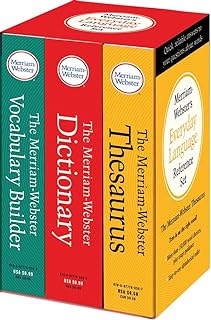5 important factors worth considering when looking for the best dictionary
Choosing a dictionary isn’t just about picking a book with words and definitions. There are important things to think about that can really help you get the most out of this important tool. The quality of the definitions, how easy it is to find what you need, and any extra features included can all affect how well you learn and communicate. So, it’s really important to carefully think about these factors before buying a dictionary to improve your language skills.
See our guide to the best dictionary.
Language coverage
When you’re buying a dictionary, it’s important to think about how many languages it includes. A good dictionary should cover commonly spoken languages as well as lesser-known dialects and regional variations. In today’s world, embracing different languages helps us understand other cultures better and makes everyone feel included. Choosing a dictionary with a wide range of languages shows that we appreciate the diversity of global communication, which can lead to better relationships and partnerships between different cultures.
Language is always changing, reflecting the way society evolves. This is why it’s important to have a dictionary that stays up-to-date with new words and phrases. Having a variety of languages in a dictionary allows users to explore and learn about unfamiliar languages. The depth and range of languages in a dictionary not only improve our language skills but also show how complex and beautiful human communication can be.
Definitions and examples
When you buy a dictionary, it’s important to think about how well it explains words. A good dictionary should give clear and detailed definitions that help you understand the word better. Examples in the definitions show how to use the word in different situations, which makes it easier to remember. A dictionary with lots of different examples not only helps you learn new words but also helps you understand language better.
In today’s world, online dictionaries are easy to access, but they may not always have accurate definitions and examples. Choosing a trusted print dictionary might be better because it has carefully selected information that is free from mistakes. Getting a good dictionary isn’t just about getting definitions; it’s a way to explore and enjoy language more deeply. A good dictionary not only tells you what words mean but also gives you a better understanding of language.
Pronunciations
When you’re buying a dictionary, it’s important to check if it includes a pronunciation guide. In today’s digital world, having a dictionary with clear and accurate pronunciations can really help you learn a new language and feel more confident when you speak. A good pronunciation guide is like a helpful friend, showing you how to say words correctly.
A dictionary that does a great job with pronunciation not only helps you learn a new language but also makes exploring words and their meanings more interesting. It turns the task of looking up words from boring to fun as you discover the different sounds in language. Choosing a dictionary that focuses on clear and easy-to-use pronunciation keys can really improve your vocabulary and language skills.
Synonyms and antonyms
When exploring language and building your vocabulary, choosing the right dictionary is important. Some people prefer a thesaurus to find different words with similar meanings, while others prefer an antonyms dictionary to understand words that are opposites. Both options can help writers express themselves clearly and create vivid images with their words.
In a world where language shapes how we communicate, a dictionary is like a trusted guide, helping us navigate the world of words. Whether you enjoy using synonyms or exploring antonyms, the dictionary you choose reflects your goals and interests in language and art. To truly appreciate language, we must explore all kinds of words and the emotions they can convey.
As we strive to master language, we can benefit from using both synonyms and antonyms dictionaries. Each word we choose is like a brushstroke on a canvas, adding to the connection we have with others. By embracing a variety of words, we can express ourselves more effectively and create meaningful communication.
Special features (such as word origins or usage notes)
When you’re thinking about buying a dictionary, don’t forget about the special features like word origins and usage notes. These extra parts make the dictionary more interesting and help you understand words in a deeper way. Word origins give you the history of a word, showing how it has been used over time and in different cultures. Usage notes help you know how to use a word correctly, so you can speak and write with more confidence and accuracy.
In a world full of information, a dictionary with special features like word origins and usage notes is a valuable tool for learning. By studying where words come from and how they are used, readers can improve their vocabulary and appreciate the diversity of language. These kinds of dictionaries are not just for looking up words quickly; they are like windows into the amazing world of language, inviting us to explore, learn, and be amazed by the beauty of words.
Conclusion
In our world, language is crucial for learning and comprehension. The dictionary is a valuable tool that provides definitions and reflects our shared human experiences. It helps us understand the subtle differences in communication, bringing people from different backgrounds and ages together. As language continues to change, the dictionary serves as a reliable resource, showing us the intricate beauty of our diverse languages. It represents our ongoing desire for clear communication and connection, influencing how we understand and engage with the world. Want more info on alarm clock, check the best alarm clock.
